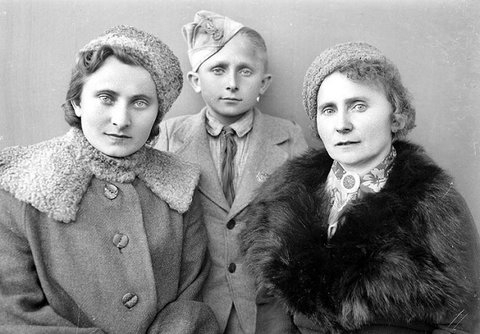Iran (IMNA) - After a period of slave labour, on the basis of the Sikorski-Maisky Agreement, Polish citizens were allowed to form an army. After diplomatic relations were severed between the Polish government-in-exile and the Soviet Union, the army made its way via Kazakhstan to Iran. Deportations to Siberia had affected at least several hundred thousand Poles, while 116,000 Polish citizens managed to escape from the Soviet Union with General Władysław Anders’ army.
This group included some 3,000 orphans who ended up in Esfahan together with their caretakers and teachers. Their stay in Esfahan meant a complete change in their circumstances. After years spent in the steppes of Kazakhstan, the deserts of Turkmenistan and the taigas of Siberia, these Polish orphans found themselves in a fairy-tale oasis – Esfahan was like a paradise.

Referring to the construction of a statue of Polish children in Isfahan during a bilateral meeting of Ghodratollah Norouzi and Maciej Falkowski, the mayor of Isfahan said, "Some streets in Isfahan, especially Chahar Bagh Boulevard, are the reminiscent of Polish children; today we are ready to make and install a symbolic statue of Polish children in our city. Also, as UNICEF is investigating the Isfahan case for joining the network of child-friendly cities, there will be opportunities for further cooperation in this regard."
Maciej Falkowski, the Polish ambassador to Tehran hailed the major allocation of Isfahan's international graphic design exhibition to polish children as a strong tie between Poland and Isfahan.
"What Isfahani people did for Polish communities will stick to memories; Isfahan is a beloved entity for polish tourists," he continued.
The Polish ambassador welcomed the Isfahan mayor's proposals to set up a diplomatic Polish consulate and construction of polish children statue in Isfahan and said,"I consider Isfahan as one of the most important cultural and economic centers in Iran, and I hope that we develop our relations in the light of the opportunities for further cooperation; rest assured that I will come to Isfahan constantly and the Polish Embassy will dedicate itself to Isfahan and Kraków."


Your Comment